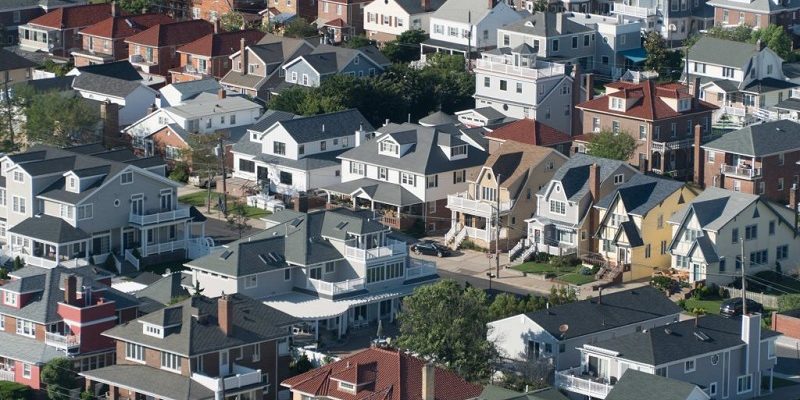HOA special assessments can be a source of friction between the board and community members. What is a special assessment, and how does HOA special assessment rules affect residents? Can an association just call for an HOA assessment or a condo assessment in the case of high-rise communities? Let’s take a look at why HOAs find the need to levy these special assessment liens on top of regular fees.
HOA Special Assessments: Who Needs Those Anyway?
 Many residents who move into a community with a homeowners association are unfamiliar with HOA special assessments. To understand the need for special assessments, it is important to know how an HOA uses its money. Associations use a variety of fund sources to cover the necessary expenses of their community. Aside from regular maintenance funds, most if not all HOAs will also have a reserve fund built up, as well.
Many residents who move into a community with a homeowners association are unfamiliar with HOA special assessments. To understand the need for special assessments, it is important to know how an HOA uses its money. Associations use a variety of fund sources to cover the necessary expenses of their community. Aside from regular maintenance funds, most if not all HOAs will also have a reserve fund built up, as well.
So why do HOAs need special assessments? It’s good to know how certain situations can cause an HOA to need additional funding. HOAs usually need more money in case of emergencies. When the unexpected happens and the reserve funds can’t cover the shortfall, that’s where HOA special assessments come into the picture.
How an HOA Uses Its Money
 The homeowners associations are responsible for many different things on behalf of the community. These obligations depend on the location, governing rules and by-laws, and the overall size of the communities that they manage. HOAs are usually responsible for the maintenance of common areas. This is where the bulk of their operating funds go into.
The homeowners associations are responsible for many different things on behalf of the community. These obligations depend on the location, governing rules and by-laws, and the overall size of the communities that they manage. HOAs are usually responsible for the maintenance of common areas. This is where the bulk of their operating funds go into.
HOAs will usually spend on central area landscaping, maintenance of public recreation areas. These costs also include the utilities, janitorial, security, and insurance services they require. To support these roles, the HOA is also responsible for collecting dues from members.
HOAs are also responsible for managing risks to the community. When disaster strikes, it is usually the HOA that manages the emergency repairs to general parts of the community.
What Is an HOA Reserve Fund vs HOA Special Assessments
 An HOA Reserve Fund is an important fund where the association keeps money in reserve. HOAs build up reserve funds to pay for the cost of ongoing deterioration. These funds are essentially allocated to cover long-term replacements and repairs.
An HOA Reserve Fund is an important fund where the association keeps money in reserve. HOAs build up reserve funds to pay for the cost of ongoing deterioration. These funds are essentially allocated to cover long-term replacements and repairs.
Assets and components deteriorate over time. As such, the cost of deterioration no longer becomes optional. It is more of a need. Just because an HOA refuses to pay for this cost does not mean it will just magically disappear.
An HOA that is financially stable will have room to manage its regular dues well. Associations that have good processes in place can accurately determine the periodic dues they need. A well-run HOA can collect these dues from members. If they have the foresight to include reserve funds into their calculations, then an HOA can set aside a portion of this money. This portion then goes into building up a reserve fund.
A well-built reserve fund means that the HOA is not likely to resort to special assessments, even if unexpected costs come up. Well-managed HOAs can allocate a specific percentage of a member dues to that account to cover unexpected repairs. So even if natural disasters or major repairs are needed for the common areas of the community, the association is ready.
Why an HOA Resorts to Special Assessments
 Not every HOA has a reserve fund built up to cover for emergencies. A few associations, especially the newly established ones, may have no reserve funds set up at all. That means the HOA is forced to do something once a large repair becomes necessary.
Not every HOA has a reserve fund built up to cover for emergencies. A few associations, especially the newly established ones, may have no reserve funds set up at all. That means the HOA is forced to do something once a large repair becomes necessary.
Usually, an association resorts to HOA special assessments to collect the funds needed.
Not every special assessment covers emergency repairs, too. Sometimes, a replacement item is simply too large of an expense compared to the reserve fund. For example, a condo high-rise roof is finally too old to safely repair. That’s a large roof job that only specialized vendors can do.
A reserve fund may be insufficient to cover projects of this magnitude. So in this case, the HOA will need to hit up the homeowners’ pockets to collectively pay for the replacement.
The typical way for HOA to raise these funds is by issuing special assessments.
Are There Limits on Special Assessments?
 There are too many issues with HOAs not reporting their finances properly. That’s why many states have cracked down on HOAs and how they are reporting their financial transactions. Many of these cases have to do with how they are billing their current residents. Of course, that covers special assessments, as well.
There are too many issues with HOAs not reporting their finances properly. That’s why many states have cracked down on HOAs and how they are reporting their financial transactions. Many of these cases have to do with how they are billing their current residents. Of course, that covers special assessments, as well.
The Declaration of Covenants, Conditions, Restrictions, and Easements (CC&R’s) of an HOA should provide a set of guidelines when it comes to special assessments. Aside from the CC&Rs, other governing documents also regulate the use of HOA special assessments as well. The articles of incorporation, and bylaws of the homeowners association to figure out what procedures it has documented related to special assessments.
Also, many states have set limits on the amount of money HOAs can bill in special assessments each year. It is wise to be aware of both the documents mentioned above drafted along with your state’s current guidelines to be sure that you are not being overcharged by your HOA in special assessments beyond the legal limit of your state.
Need Help with Your HOAs Community Management?
A trusted external partner to manage an HOA can go a long way to ensure that you get the most out of your funds, so your reserve fund is properly maintained and that special assessments are avoided as often as possible. We have helped homeowners associations located in many parts of the United States streamline the management processes of their HOAs. To learn more about how a community management company can make a big difference for your HOA’s financial stability, give us a call.
RELATED ARTICLES:
- Top 13 Budgeting Mistakes Of Self-Managed Boards
- Can HOA Fees Go Up? Why And Why Not?
- Operating Funds vs Reserve Funds: What’s The Difference?

